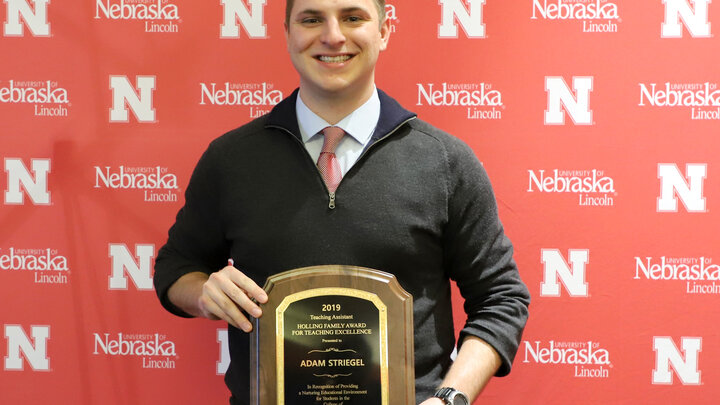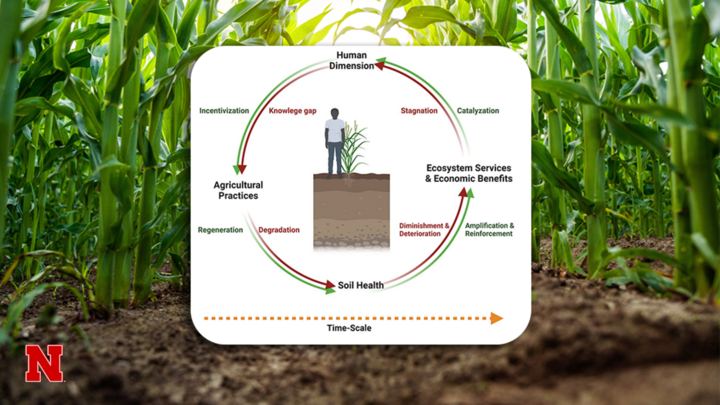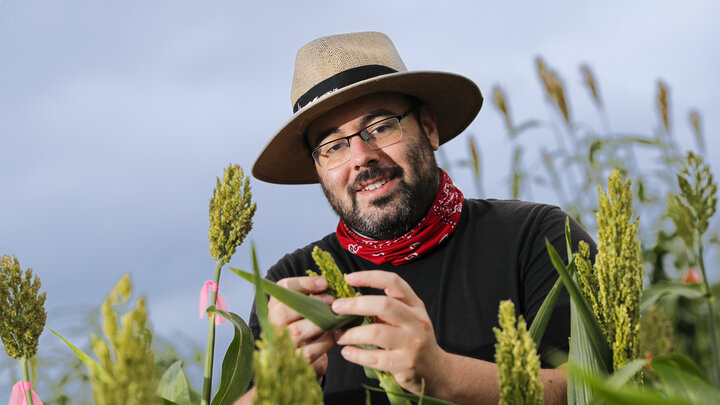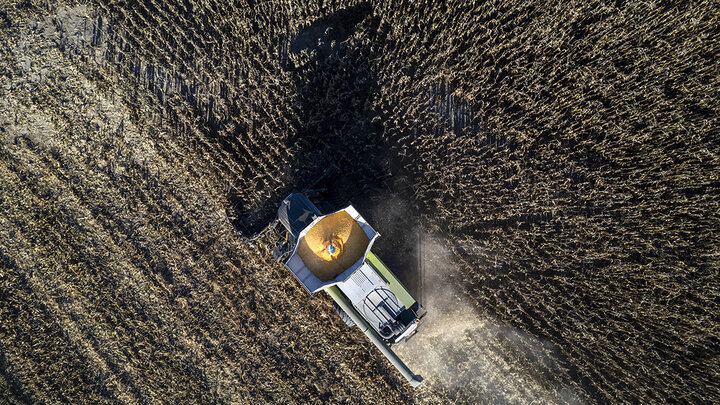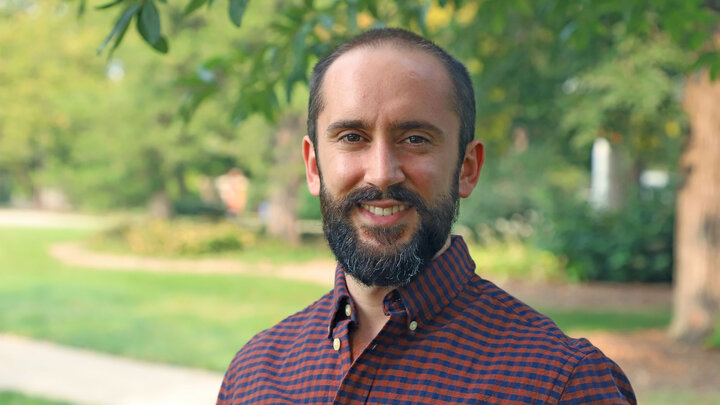Adam Striegel, a University of Nebraska–Lincoln Doctor of Plant Health student and an agronomy master's student specializing in weed science, received a Teaching Excellence Award.
The award is one of ten Holling Family Awards for Teaching Excellence given to Institute of Agriculture and Natural Resources senior faculty, junior faculty and teaching assistants each year. All three award categories honor outstanding teaching with an emphasis on imaginative and creative teaching efforts in carrying out IANR educational programs.
Striegel received a Teaching Assistant Teaching Excellence Award. This award recognizes students who are currently in graduate degree programs under the supervision of IANR faculty members involved with agricultural sciences and natural resources. The award emphasizes imaginative and creative teaching efforts in carrying out IANR educational programs.
Stiegel is advised by Amit Jhala, associate professor of agronomy and horticulture and Nebraska Extension weed management specialist, and Gary Hein, director of the Doctor of Plant Health Program.
Striegel began graduate school at Nebraska in 2016 with an assistantship for teaching and coaching the undergraduate Intercollegiate Crops Judging Team, historically a student-led extracurricular activity. He developed a one-credit independent study course to prepare students for competition and for their future careers in agronomy. The course has proved popular with enrollment almost tripling since the first semester, a feat Striegel attributes entirely to students seeing the value in the course and encouraging their peers to enroll.
He also developed a Crops Judging Handbook for use in the class. The handbook covers the identification of nearly 140 crop and weed species, 40 insects and 30 diseases. He created high quality seed photographs of nearly 125 crop and weed species used in the handbook.
Since Striegel has been coach for the Crops Team, Nebraska has placed in the top three places in the last 13 regional and national crops judging contests.
“The success indicates the hard work and energy put together by Adam in this course to train students. Adam has been the sole instructor of this course and has done so despite the heavy course load he has carried as a Doctor of Plant Heath student,” Jhala said.
Comparing different PRE/POST herbicide programs in conventional, glufosinate resistant, glyphosate resistant and glyphosate/dicamba resistant soybeans is Striegel's research focus for his master’s degree. He is also working on controlling glyphosate/glufosinate resistant volunteer corn in Enlist™ corn. The projects are multi-year, multi- location and supported by the Nebraska Soybean Board.
“This project is relatively difficult because it requires a lot of hard work and communication with other weed scientists to conduct this project at five locations across Nebraska. Adam is extremely serious about this project and has independently developed protocols, data record sheets, and other details for each location,” Jhala said.
Striegel’s ideal career, be it in extension, academia, or industry, is one where he can impart his knowledge and share his passion with clientele to help them become more successful.
His passion for agronomy and teaching is quite evident based on the positive course evaluations from students and the Crops Judging Team contest results.
“The efforts he has and continues to put towards his course are commendable. I have no doubt in his ability to become a successful and independent teacher and researcher in the near future,” Jhala said.
The Holling Family award program for teaching excellence was made possible by a gift from the Holling family to honor their pioneer parents. John Holling was a 1912 electrical engineering graduate of the University of Nebraska–Lincoln and his brother, Gustave Holling, attended the College of Agriculture before farming the family’s land in the Wood River Area.
